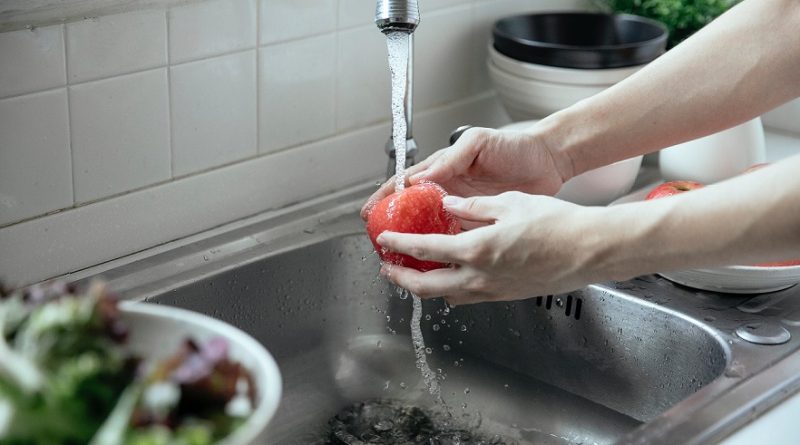Ways to Save Water at Home
Next to air, water is the most important element for the preservation of life. Simple measures around the house will help you conserve water and save money on your household bills.
Indoors
Don’t let the faucet run while you clean vegetables
Rinse your vegetables instead in a bowl or sink full of clean water.
Water indoor plants with leftover water
Use water left in cups and kettles to water your indoor plants.
Check your toilet for leaks
Your toilet tank may be leaking water. To test for leak, drip food coloring in the tank. If the dye appears in the toilet bowl, call a plumber to fix the seal.
Stop using your toilet as an ashtray or wastebasket
Every cigarette butt or tissue you flush away also flushes away five to seven gallons of water.
Put a plastic bottle in your toilet tank
Put an inch or two of sand or pebbles in the bottom of a one liter bottle to weigh it down. Fill the rest of the bottle with water and put it in your toilet tank, safely away from the operating mechanism. In an average home, the bottle may save five gallons or more of water every day without harming the efficiency of the toilet. If your tank is big enough, you may even be able to put in two bottles.
Shower instead of bathing
Bathing uses more than 25 percent of all household water, so shower instead if possible.
Take shorter showers
A typical shower uses five to ten gallons of water a minute. Limit your showers to the time it takes to soap up, wash down and rise off.
Install water-saving shower heads or flow restrictors
Your hardware or plumbing supply store stocks inexpensive shower heads or flow restrictors that will cut your shower flow to about three gallons a minute instead of five to ten. They are easy to install, and your showers will still be cleansing and refreshing.
Turn off the faucet while brushing your teeth
Never leave the bathroom faucet running while you brush your teeth. Before brushing, wet your brush and fill a glass for rinsing your mouth.
Turn off the water while shaving
Fill the bottom of the sink with a few inches of warm water in which to rinse your razor.
Check faucets and pipes for leaks
Dripping taps waste hundreds of gallons of water each year. Drips from hot-water taps waste energy as well as water.
Only run the washing machine and dishwasher when you have a full load
Your washing machine uses 30 to 35 gallons per cycle. Running your dishwasher less often saves water and money. Wash small loads by hand.
If you wash dishes by hand, don’t leave the water running for rinsing
If you have two sinks, fill one with rinse water. If you have only one sink, first gather all your washed dishes in a dish rack, then rinse them quickly with a spray device or a pan of water.
Check water usage
Monitor your water usage on your water bill and ask your local government about a home water audit.
Outdoors
Water outdoor plants with dishwater
Dishwater can be used to water outdoor plants if you do not use harsh detergents.
Deep-soak your lawn
When you do water your lawn, water it long enough for water to seep down to the roots where it is needed. A light sprinkling that sits on the surface will simply evaporate and be wasted.
Water lawn during the cool parts of the day
Early morning is better than dusk since it helps prevent the growth of fungus.
Water your lawn only when it needs it
Watering on a regular schedule doesn’t allow for cool spells or rainfall which reduce the need for watering. Step on some grass. If it springs back up when you move your foot, it doesn’t need water. Or Install rain sensors on irrigation systems.
Install a rain barrel for outdoor watering
Plant drought-resistant trees and plants
Plant a rain garden for catching storm water runoff from your roof, driveway, and other hard surfaces. Many beautiful trees and plants thrive without irrigation.
Put a layer of mulch around trees and plants
Mulch slows the evaporation of moisture.
Use a broom to clean driveways, sidewalks and steps
Using a hose wastes hundreds and hundreds of gallons of water. Sweep driveways and sidewalks clean with a stiff broom instead of housing them down.
Don’t run the hose while washing your car
Soap down your car from a pail of soapy water. Use a hose only to rinse it off.
Check for leaks in pipes, hoses faucets and couplings
Leaks outside the house are easier to ignore since they since they don’t mess up the floor or keep you awake at night. However, they can be even more wasteful than inside water leaks especially when they occur on your main water line.
Knowledge Share
Share your knowledge about saving water through conservation and efficiency with your neighbors.
